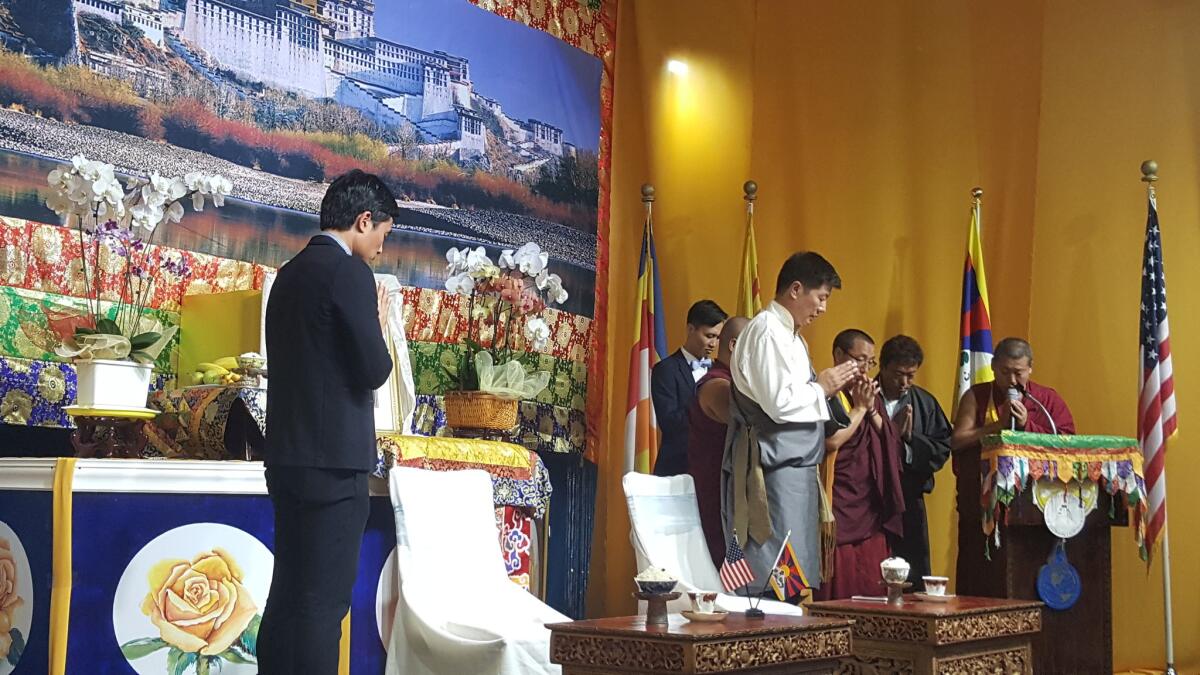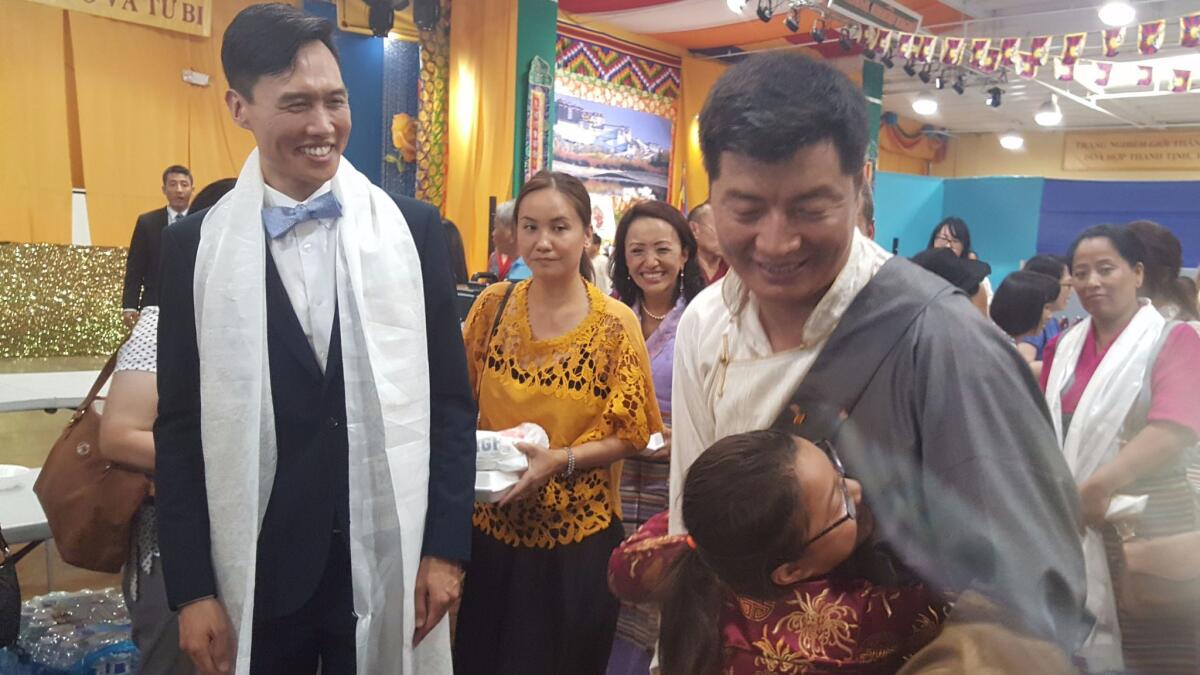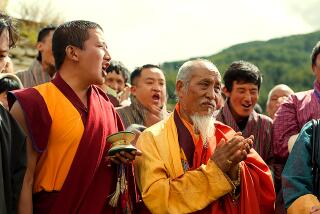Inspired to ‘build trust and work together,’ Tibetans and Vietnamese hold human rights conference in Little Saigon

The Tibetan leader, draped in a silky, traditional loose coat, joined a group of monks in prayers with a single purpose: charting a path toward peace.
Near Lobsang Sangay, the Harvard-educated ruler of the Tibetan government in exile, stood Hoi Trinh, a Vietnamese and Australian lawyer lauded as an expert in international refugee law and policies.
In an unprecedented gathering in Westminster to highlight human rights abuses, both Trinh and Sangay described themselves as men who come from nations “on the same journey,” whose people struggle under communist brutality but refuse to give up fighting for freedom.
Basic human rights and freedom continue to be denied to 6 million Tibetans inside their homeland, exploited for its rich minerals under China’s control, and to 95 million Vietnamese in Vietnam, resulting in beatings, deaths, imprisonment without trials and self-immolations, they said.
The crowd of nearly 250 people reserved its loudest cheers for Sangay, who said: “Communism is 100 years old. Buddhism is 2,500 years old. There is no competition between the two,” praising the religion’s endurance “because it has this innate strength. The foundation is solid.”
Even if Chinese leaders destroyed more than 90% of Tibet’s monasteries and nunneries after its takeover of their homeland in 1959, expatriate Tibetans working with the Dalai Lama, their spiritual leader, succeeded in spreading Buddhism back into Tibet and across the globe, Sangay said.
New dharma centers that have opened in past decades around the world show the vitality and beauty of the religion, he added. “Your struggles are very similar to ours. We are in solidarity,” Sangay said, in a nod to listeners at the great hall of the Dieu Ngu Temple in Little Saigon.
Although Tibetans are forbidden to own a photo of the Dalai Lama, or shout a slogan of democracy on the streets of Tibet — at risk of going to prison and being tortured — Sangay said they are not intimidated by the Chinese government. “You can buy goods with money. You can force action with guns,” he said. “But, ultimately, if you want to win the hearts and minds of people, you need respect.”

Almost every local Vietnamese American political figure — from members of the Garden Grove Unified School District board, to council members from Garden Grove, Fountain Valley and Westminster, to a county supervisor and state senator — made appearances to back the human rights campaign. Congressman Dana Rohrabacher (R-Costa Mesa), who has fought against the repression of Tibetans, sat in the front row, waving to immigrants as they held up their cellphones to capture him speaking.
Two years ago, the Freedom House index listed Syria as the least free country in the world — with Tibet ranked No. 2.
Trinh and Sangay attacked China as “the biggest bully,” with Trinh explaining that he preferred to move Saturday’s focus beyond human rights issues, which have been carefully documented by bloggers, the media or non-governmental organizations, to talking about solutions. Trinh asked people to train activists and provide financial support to groups fighting for human rights in Southeast Asia.
“Don’t just listen, you must get involved,” Trinh urged.
Many in the audience were left inspired by the speakers.
“Finally, there is guidance,” pharmacist Elise Phan, 43, said after Trinh’s remarks. “I’m grateful there is Vietnamese young talent out there who sacrifice their professional life to raise human rights in our country. That is everything to me.”
“Definitely, we both can help each other in our struggles,” says Nawang Lhautara, 67, a retired insurance executive from Ojai who also attended. “We need to combine our heads and figure out more of what to do.”
Chog Tsering, a board member of the Tibetan Assn. of Southern California who helped organize Saturday’s event by partnering with the Vietnamese American Buddhist Congregation in the USA, agreed.
“The right thing to do is to build trust and work together,” Tsering said. “We have the same hearts.”
Twitter: @newsterrier
More to Read
Start your day right
Sign up for Essential California for news, features and recommendations from the L.A. Times and beyond in your inbox six days a week.
You may occasionally receive promotional content from the Los Angeles Times.







